adopted

 Alli Simpson, who is my grandnephew, Xander Spethman’s girlfriend is a sweet girl who has captured Xander’s heart, and everyone in his family loves her very much. Alli is a quiet girl, at least when I have been around her, but maybe she is just shy because she doesn’t know me too well. Xanders family has pretty much “adopted” her, for now…a situation that will change as their relationship deepens. It’s not every day that a person fits so perfectly in a family, but Alli is one of those precious few who really do.
Alli Simpson, who is my grandnephew, Xander Spethman’s girlfriend is a sweet girl who has captured Xander’s heart, and everyone in his family loves her very much. Alli is a quiet girl, at least when I have been around her, but maybe she is just shy because she doesn’t know me too well. Xanders family has pretty much “adopted” her, for now…a situation that will change as their relationship deepens. It’s not every day that a person fits so perfectly in a family, but Alli is one of those precious few who really do.
Alli is a smart girl, who worked hard and graduated from high school one semester early. I know she has great things ahead of her. She had considered becoming a nurse at one point, but like many people who were considering nursing, plans changed following Covid-19. While her plans may have taken a setback, I know that this ambitious girl did not. Whatever she decides to do, I know 
 that she will land on her feet. Right now, she is just working and enjoying spending time with Xander and his family.
that she will land on her feet. Right now, she is just working and enjoying spending time with Xander and his family.
Alli loves plants. If you look at her Facebook profile page, you will pick up on that fact immediately. I must say that I have to give a lot of credit to anyone who can raise plants, because there are lots of us out there who definitely can’t. I can kill a plant in record time, so I am in awe of anyone who can keep one alive for more than a month. Alli’s sense of humor even extends to her plants. While I don’t know if she would actually take a plant out for a walk, the fact that she sees humor in the idea makes me smile. Maybe she would do that, simply because it would be something new and different. I think that if Xander is looking for a birthday present for her, a plant stroller might be just the ticket.
It seems that Alli has always been a bit of a princess and really, a fashionista. That makes her a good friend for 
 Xander’s little sister, Aleesia, who is a fashionista too, and as the only girl in the Spethman family, she and Alli and Xander’s mom, Jenny Spethman, of course, can all share in their fashion/princess world together. Alli and Xander have also decided that they want to help an animal in need, so recently, they adopted a dog that they named Rocky. Rocky loves his new mommy and daddy, and since the kids just moved into their first place together, they now have a nice little family. Today is Alli’s 18th birthday. Happy birthday Alli!! Have a great day!! We love you!!
Xander’s little sister, Aleesia, who is a fashionista too, and as the only girl in the Spethman family, she and Alli and Xander’s mom, Jenny Spethman, of course, can all share in their fashion/princess world together. Alli and Xander have also decided that they want to help an animal in need, so recently, they adopted a dog that they named Rocky. Rocky loves his new mommy and daddy, and since the kids just moved into their first place together, they now have a nice little family. Today is Alli’s 18th birthday. Happy birthday Alli!! Have a great day!! We love you!!
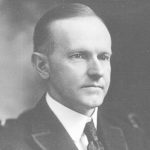 The Indian tribes didn’t usually have much use for the White Man, especially the ones who worked for the government. It seemed all they wanted to do was to herd the Indians onto the reservations and take away their lands, culture, and their language. This made the majority of Indians pretty angry, but President Calvin Coolidge was different than most government people. It wasn’t a matter of what he was able to accomplish, but rather what he wished he could accomplish, and maybe what he set the stage for…and mostly what the Indians knew was in his heart.
The Indian tribes didn’t usually have much use for the White Man, especially the ones who worked for the government. It seemed all they wanted to do was to herd the Indians onto the reservations and take away their lands, culture, and their language. This made the majority of Indians pretty angry, but President Calvin Coolidge was different than most government people. It wasn’t a matter of what he was able to accomplish, but rather what he wished he could accomplish, and maybe what he set the stage for…and mostly what the Indians knew was in his heart.
President Coolidge had made it very clear that, on personal moral grounds, he sincerely regretted the state of poverty to which many Indian tribes had sunk after decades of legal persecution and forced assimilation had been forced upon them. Coolidge made a public policy toward Indians, that included the Indian Citizen Act of 1924, which granted automatic United States citizenship to all American tribes, something that made perfect sense, since they had been here longer than the nation had existed. Nevertheless, during his two terms in office, while Coolidge 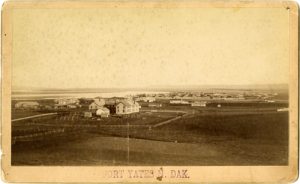 presented a public image as a strong proponent of tribal rights, the United States government policies of forced assimilation remained in full swing during his administration. At this time, all Indian children were placed in federally funded boarding schools in an effort to familiarize them with white culture and train them in marketable skills. During their schooling, they were separated from their families and stripped of their native language and culture, something that should never have happened, and something that has since been changed.
presented a public image as a strong proponent of tribal rights, the United States government policies of forced assimilation remained in full swing during his administration. At this time, all Indian children were placed in federally funded boarding schools in an effort to familiarize them with white culture and train them in marketable skills. During their schooling, they were separated from their families and stripped of their native language and culture, something that should never have happened, and something that has since been changed.
While not able to fix all the wrongs done to the Indians, Coolidge was still considered a friend of the Indians. In 1927, he planned a trip to the Black Hills region of North Dakota. In anticipation of the trip, the Sioux County Pioneer newspaper reported that a Sioux elder named Chauncey Yellow Robe, a descendant of Sitting Bull and an Indian school administrator, had suggested that Coolidge be inducted into the tribe. The article stated that 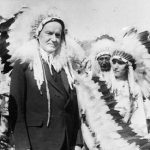 Yellow Robe graciously offered the president a “most sincere and hearty welcome” and hoped that Coolidge and his wife would enjoy “rest, peace, quiet and friendship among us.” Calvin Coolidge was very pleased at the offer, and decided to accept. This was not something that was offered to many people, so it was a great honor. The Sioux County Pioneer newspaper of North Dakota reported that on June 23, 1927 President Calvin Coolidge would be “adopted” into a Sioux tribe at Fort Yates on the south central border of North Dakota. At the Sioux ceremony in 1927, photographers captured Coolidge, in suit and tie, as he was given a grand ceremonial feathered headdress by Sioux Chief Henry Standing Bear and officially declared an honorary tribal member.
Yellow Robe graciously offered the president a “most sincere and hearty welcome” and hoped that Coolidge and his wife would enjoy “rest, peace, quiet and friendship among us.” Calvin Coolidge was very pleased at the offer, and decided to accept. This was not something that was offered to many people, so it was a great honor. The Sioux County Pioneer newspaper of North Dakota reported that on June 23, 1927 President Calvin Coolidge would be “adopted” into a Sioux tribe at Fort Yates on the south central border of North Dakota. At the Sioux ceremony in 1927, photographers captured Coolidge, in suit and tie, as he was given a grand ceremonial feathered headdress by Sioux Chief Henry Standing Bear and officially declared an honorary tribal member.
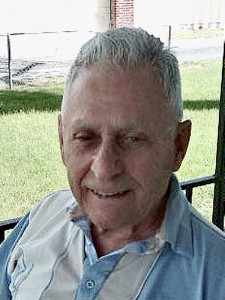 My Uncle George Hushman, who is a very dear part of this family, had one of the more difficult beginnings of any of us. Uncle George was raised in the orphanage in Casper, Wyoming. His mother died when he was just eleven, and his dad, who wasn’t in his life earlier on, died in World War II in 1943, when he was seventeen years old. The children’s home was where his first ties to my family would begin. He befriended one of the sons of my son-in-law, Kevin Petersen’s great grandmother, Hettie Middleton St John, and she took him into her family, in a way. She didn’t adopt him or take him in as a foster child, but because of that friendship, he was a regular fixture at their home, and they always felt like he was an unofficially adopted son. Uncle George’s family also felt that way about Hettie over the years. I remember my cousin, Shannon Limmer going over to her Grandma St John’s house to help her get ready for bed, many times. Little did I know then how this unofficial family relationship would tie into my own family years later, but that is what it did, when my daughter, Corrie married Kevin Petersen. It was quite surprising to find out that my Uncle George had such close ties to Kevin’s mom, Becky Skelton and her family….but it was pretty cool too. The kindness of Kevin’s great grandmother had lived on over the years, never to be forgotten.
My Uncle George Hushman, who is a very dear part of this family, had one of the more difficult beginnings of any of us. Uncle George was raised in the orphanage in Casper, Wyoming. His mother died when he was just eleven, and his dad, who wasn’t in his life earlier on, died in World War II in 1943, when he was seventeen years old. The children’s home was where his first ties to my family would begin. He befriended one of the sons of my son-in-law, Kevin Petersen’s great grandmother, Hettie Middleton St John, and she took him into her family, in a way. She didn’t adopt him or take him in as a foster child, but because of that friendship, he was a regular fixture at their home, and they always felt like he was an unofficially adopted son. Uncle George’s family also felt that way about Hettie over the years. I remember my cousin, Shannon Limmer going over to her Grandma St John’s house to help her get ready for bed, many times. Little did I know then how this unofficial family relationship would tie into my own family years later, but that is what it did, when my daughter, Corrie married Kevin Petersen. It was quite surprising to find out that my Uncle George had such close ties to Kevin’s mom, Becky Skelton and her family….but it was pretty cool too. The kindness of Kevin’s great grandmother had lived on over the years, never to be forgotten.
Of course, the main way that Uncle George became a part of my family was when he married my Aunt Evelyn 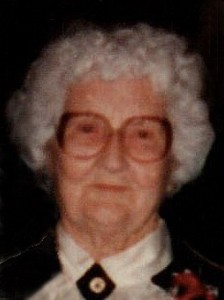 Byer Hushman on September 1, 1947. I wonder if he knew that his wedding day was also Hettie’s birthday. Maybe that occurred to him, and maybe not, but World War II was over, and like most men who fought in that war, it was a time to pursue their own happiness. They had lived through the war, and for that they were grateful. Now they could live their lives. It was just a few years after the Uncle George returned from the war, where he served in the United States Navy, and was wounded in action. His injuries could have ended his life, but God had other plans for him….and for that we will always be grateful. Uncle George sustained a head injury, and to this day, has a plate in his head. Thankfully that has been the only long term change in his life. His mind remained intact.
Byer Hushman on September 1, 1947. I wonder if he knew that his wedding day was also Hettie’s birthday. Maybe that occurred to him, and maybe not, but World War II was over, and like most men who fought in that war, it was a time to pursue their own happiness. They had lived through the war, and for that they were grateful. Now they could live their lives. It was just a few years after the Uncle George returned from the war, where he served in the United States Navy, and was wounded in action. His injuries could have ended his life, but God had other plans for him….and for that we will always be grateful. Uncle George sustained a head injury, and to this day, has a plate in his head. Thankfully that has been the only long term change in his life. His mind remained intact.
After his marriage to Aunt Evelyn, Uncle George would go on to have five children, and their lives would forever be intertwined with the lives of my sisters and me. Aunt Evelyn and Uncle George often double dated with my parents, and we spent many awesome times at each others’ houses. Uncle George’s soft spoken humor has always endeared him to me. He was always such a gentle man. So often, and maybe it is more these days than his childhood days, children who were raised in an orphanage or in foster care, ended up being somewhat mean…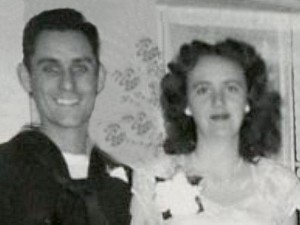 as a self defense mechanism. When there are many kids and little supervision, you have to learn take care of yourself, because no one else will. I suppose that he may have had the advantage of a good friend’s mother to keep him from becoming jaded, or it could have been just something within himself that would not allow him to be poorly affected by the circumstances around him. In many ways I think it was probably a lot him and a little bit of help for those around him, like Kevin’s great grandmother, Hettie St John. Nevertheless, it is the person themselves who ultimately determines the kind of person they will become, and Uncle George became a wonderful man. Today is Uncle George’s 88th birthday. Happy birthday Uncle George!! Have a great day!! We love you!!
as a self defense mechanism. When there are many kids and little supervision, you have to learn take care of yourself, because no one else will. I suppose that he may have had the advantage of a good friend’s mother to keep him from becoming jaded, or it could have been just something within himself that would not allow him to be poorly affected by the circumstances around him. In many ways I think it was probably a lot him and a little bit of help for those around him, like Kevin’s great grandmother, Hettie St John. Nevertheless, it is the person themselves who ultimately determines the kind of person they will become, and Uncle George became a wonderful man. Today is Uncle George’s 88th birthday. Happy birthday Uncle George!! Have a great day!! We love you!!

